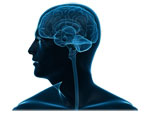Tagged with “Exercise”
January 2, 2018
Although the primary focus of this blog is on “traumatic” brain injury, the literature increasingly demonstrates that the physiological causes of cognitive impairment overlap between a range of conditions having neurodegenerative consequences, including TBI, PTSD, Alzheimer’s disease and “Chemobrain”. (Chronic inflammation appears to be one of the common variables, as discussed in prior posts.) Read More
January 17, 2017
In a study published in the Journal of the American Medical Association (JAMA) on December 20, 2016, Canadian researchers found that children and adolescents who returned to exercise within seven days of experiencing a concussion had nearly half the rate of persistent post-concussive symptoms a month later. This finding challenges the current cornerstone of pediatric concussion management, which is physical and cognitive rest until acute symptoms have resolved. Read More
May 28, 2015
In a study published in April 2015 in the medical journal Brain Behavior and Immunity, a team of Canadian researchers at McMaster University presents a new understanding of the cause of the wide-array of symptoms experienced by some patients following concussion, such as headaches, dizziness, sleep disturbance, fatigue, cognitive impairment and neuropsychiatric symptoms.
This new paradigm helps to explain why the same pattern of symptoms can be found in some non-head injury patients, such a patient who has experienced infections or a patient diagnosed with post-traumatic stress disorder. It also helps to explain why some patients recover and others do not and why pre-accident experience can influence the course of post-accident recovery. Read More
May 27, 2014
Different symptom patterns of concussion depend on the precise nature of the damage to the brain
 Medical research is increasingly identifying the various ways a concussion can impact the brain and is providing explanations for why different symptoms persist in a subset of people diagnosed with concussion, based on the anatomy and physiology of the brain.
Medical research is increasingly identifying the various ways a concussion can impact the brain and is providing explanations for why different symptoms persist in a subset of people diagnosed with concussion, based on the anatomy and physiology of the brain.
Much of this recent research has benefited from new techniques to “image” the brain, including various MRI techniques such as “diffusion tensor imaging” (“DTI”). In a prior post, I discussed research concerning the subset of concussed patients who experience persistent ocular (vision) and vestibular (balance) problems. A paper published online on April 15, 2014 in the journal Radiology reported that DTI imaging of patients with these symptoms revealed damage in the parts of the brain know to be associated with vision and balance. Read More
December 11, 2013
Using functional brain imaging (fMRI) a multidisciplinary team of researchers at the University of Buffalo have documented metabolic and physiologic changes in the brains of patients experiencing post-concussion symptoms. They found improvements in both imaging findings and in patient symptoms following a controlled, progressive aerobic exercise program. The results have been published in both the Journal of Head Trauma Rehabilitation and in Current Sports Medicine Reports and are summarized in UB news releases. Read More
May 15, 2013
The human brain is complex. Every brain injury is unique. But nearly every person who suffers a brain injury experiences that frightening feeling of “I am not myself anymore.” In mild traumatic brain injury (MTBI) cases, specifically, this feeling may recede over a period of weeks or months. But for others, it does not.
Whether the symptoms are permanent, improve, or get worse, the reasons for these differences are constantly researched—looking for ways to explain, prevent, and/or heal traumatic brain injuries. Several new studies on mild brain injury are examining factors ranging from genetic differences to differences in emotional make-up in order to understand why these differences exist. New research is leading to new approaches in treatment and rehabilitation, as well as prevention.
Read More

